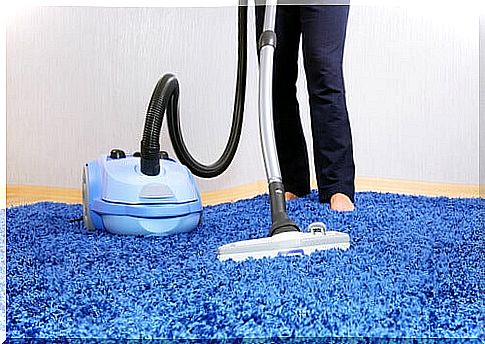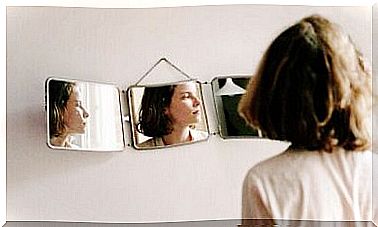The Household: A Therapy Within The Reach Of All

The concept of “cleaning the house” doesn’t just have a literal meaning. It is also symbolic: it comes down to shedding emotional charges, letting go of what is no longer useful to us. It’s easy to see that clutter breeds stress and worry. Housekeeping, as an exercise in “mindfulness”, can bring us great benefits and turn into therapy.
This is why cleaning must be seen as a positive act and a stress relieving exercise. Be prepared to do one of the most universal tasks that often gets a bad rap with a different attitude!
Some examples of housework as therapy
We are going to present you some examples that illustrate how the household can play a role in our internal order.
- In some cultures, household cleaning is an activity of great value and importance. In Japan, for example, it is called “ Oosouji” , which means “to clean thoroughly”. The Japanese do this cleaning on December 28 to welcome the New Year with a clean house. Accumulating old items that no longer serve and problems that tire us out bodes very badly for the New Year.
- Health professionals say that cleaning can have a relaxing effect and serve as a moment of meditation. According to psychologist Isabela Pérez-Luna, “cleaning and tidying up are activities that work like a catharsis and allow us to get rid of things that we start to consider superfluous”.

- Author Marie Kondo also explains in her book The Magic of Order that keeping your house in order directly affects our happiness and mental well-being.
- British actress Helena Bonham Carter tells us in an interview for Radio Times that “cleaning the house and doing household chores is therapy” . Director Tim Burton’s muse assures us that she no longer needed to pay for therapy with a psychologist after discovering the “therapeutic power of household chores”. She says “having an orderly house allows you to order your head”.
Household in Buddhism
In Buddhism, cleansing is also understood as a form of meditation that can be performed every day. Buddhist monks regard housekeeping as a spiritual exercise through which one can cultivate and purify one’s mind, soul and life.
Remember that one of Buddha’s disciples found nirvana while he was sweeping. For Buddhists, our environment is connected to our being and reflects our mind. They explain that when this environment is messy, so is our mind. So if we keep our house in order, our mind will be clear and quiet.
They also consider that our mind, when we cleanse, is focused on the present. Living “here and now” is one of the keys to happiness and success in life.
Household rules for well-being
Keisuke Matsumoto, in his book Household Lessons from a Buddhist Monk , outlines a decalogue of recommendations for raising our well-being through household:
- Treat objects with care. Tell yourself that each object was created with dedication and at the cost of a lot of effort. They must therefore be respected.
- Show gratitude for items that have been useful to us and discard them when we no longer need them. We can give them new life by giving them to people who can put them to good use.
- It is best to do the housework early in the morning. If we start in silence, surrounded by stillness while others are still asleep, our hearts will feel at peace and our minds released.

- At night, before going to sleep, we need to collect and put away the things that we have used and messed up during the day. The cleaning will be done more quickly the following day.
- If we are successful in cleaning up in the morning and tidying up in the evening, we will notice how awake our being remains throughout the day.
- Before cleaning, you must open the windows and ventilate to purify the air. Feeling the freshness of the air entering our skin will make us feel more awake and pure.
- Feeling the air when we air makes us connect with nature. The ventilation is soft and pleasant in spring and autumn, hot in summer and frozen in winter. Feeling its goodness and hardness on our skin allows us to realize our fragility and, at the same time, the strength of life.
- To respect life, by keeping insects from proliferating and making sure that we do not have to kill them unnecessarily, we must clean up after meals.
- Instead of regretting the past or worrying about the future, we need to live fully in the present and try not to regret anything tomorrow. If we apply this to housekeeping and purification of the soul, it would be like saying “ don’t put off until tomorrow what you can do today ”.
- Distributing the household chores among all family members helps to give value to what others do for us. Understanding that our lives depend on each other helps us work as a team and do things with others in mind.
The moment of cleaning, a therapeutic moment
Indeed, the need to clean and organize our living spaces responds to a need for regeneration. Doing the housework can turn into a moment of daily or weekly meditation. It is about taking the opportunity to carry out a mindfulness exercise.
For this, we must try to ensure that the time of cleaning is not a time to try to find a solution to the problems that concern us, to watch television, to argue with one’s spouse …
It is necessary to fully focus on the act, to tidy up, to remain silent and, above all, to pay attention to what we are doing. This full attention will allow us to reach a meditative state in which the brain waves will decrease. In this way, the stress and anxiety levels will also drop. This is how cleaning can become a completely restorative physical and spiritual exercise.









